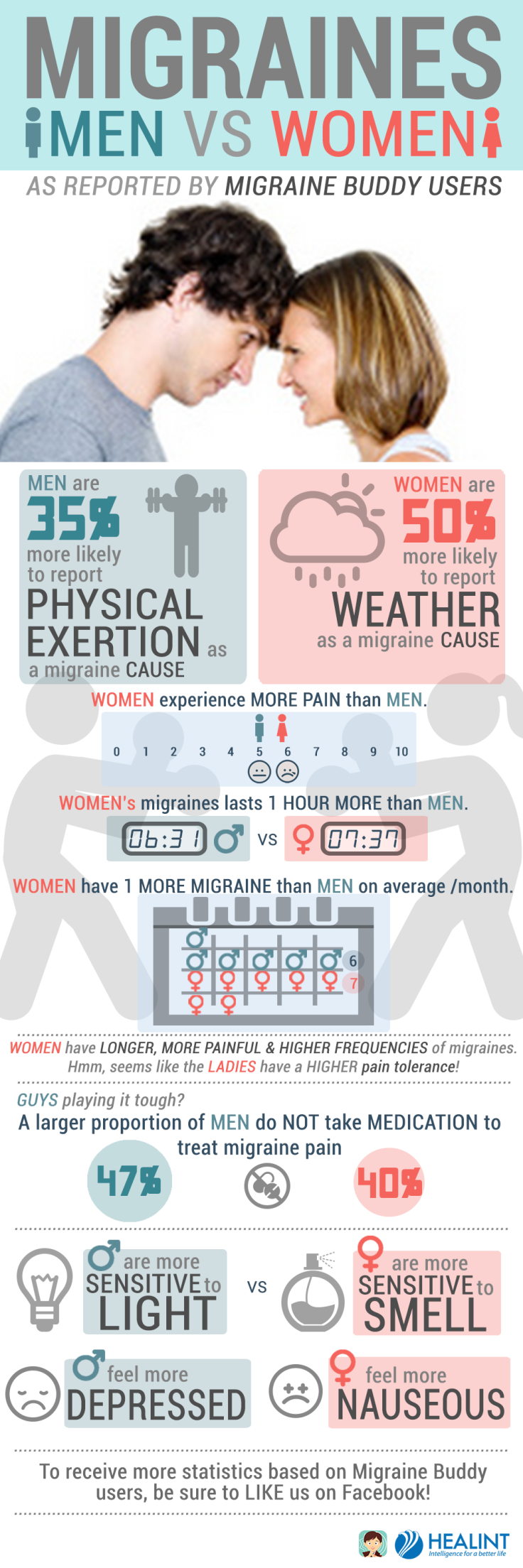Gender Differences Of Migraine Signs You Should Know: Triggers, Pain, And Duration Vary

Migraines are silent lightning storms of pain, and men and women report distinct differences on what’s happening inside their skulls. By just looking at a person you may have no clue as to how much they’re suffering. In America today, there are over 37 million people suffering from migraines that cause anything from vomiting to blurry vision or an impaired sense of smell, and experts aren’t sure exactly why. Data collected by the most popular migraine app available today known as Migraine Buddy has found clear gender-related signs and symptoms.

What they do know is that, according to self-reported symptoms, men are 35 percent more likely to experience a migraine as a result of physical exertion. Meanwhile, women are 50 percent more likely to report weather as the cause of their migraine. For a man, the typical migraine lasts 6.5 hours, and if you think that’s bad, take a look at women who suffer over an hour longer. The typical female migraine sufferer usually has one more migraine than men do each month, and she's more likely to take medication for it. Women also become more sensitive to smell than men and report experiencing more nausea. Men report feeling more depressed and more sensitive to light when they have migraines.
Regardless of gender, Migraine Buddy data scientists found users who sleep less than seven hours a night were more likely to experience a migraine attack. A regular lack of sleep may be causing 31 percent of the migraines users experience, which is why those who are prone to migraines should keep a migraine and sleep diary to figure out if they have a link.
Migraines fall are under the umbrella of headaches. The condition can either be episodic, which means they occur less than 15 days a month for three months, or it can be a chronic condition, which is a continued and persistent presence throughout a person’s life. Treatment is available in the form of daily preventive medications designed to reduce the severity or frequency, according to a study. Researchers believe hormones may have something to do with the neurological activity, which could explain why women are more likely to experience worse symptoms and higher frequencies of migraines than men.
Published by Medicaldaily.com



























